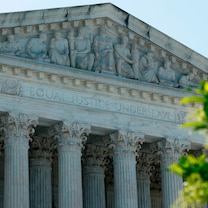Events this week could steer the economy
— -- In a month or a year, will financial markets look at the third week in June as the time that made or broke the economic recovery?
The calendar is packed with events that could move billions, or even trillions, of dollars.
Greek elections, won Sunday by a coalition that favors the debt-bailout deal reached in February, was the first of the week's dominoes to fall. Markets in Asia reacted with strong rallies in early trading. Still to come:
•In Washington, this week's meeting of the Federal Reserve's policymaking committee has markets guessing about further Fed action to stimulate the economy, though that's less likely after conservatives won in Greece.
•President Obama and other leaders of the world's top 20 economies are meeting in Mexico to discuss strategy for countering the stubborn global slowdown.
•Europe is set to have not one but two summits — one among leaders of its four largest economic powers this week, setting up a June 28 European Union parley.
Greece's vote put the short-term picture into better focus, though Europe's problems will linger for years, said Mark Zandi, chief economist at Moody's Analytics.
First, the win by the pro-bailout New Democracy party makes further Fed stimulus less likely, he said.
Instead of buying more government bonds from institutions, which pumps money into the economy, the biggest move the central bank makes will probably be a modest-size extension of its "Operation Twist" program, which is to expire this month, Zandi said. In Operation Twist, the Fed has exchanged short-term Treasury bonds it owns for longer-term securities to lower long-term rates.
The Fed had been expected to act more aggressively if the Greek results threatened the collapse of the euro currency, which could have led to a severe European recession and a loss of credit available to pay for U.S. exports, said Nigel Gault, chief U.S. economist at IHS Global Insight.
"The Fed can make decisions based on the U.S. economy for now, rather than because of a panic in financial markets," he said. "On the domestic economy, the Fed has to do something but not much."
The Fed has been under pressure to act as growth in the U.S. has slowed.
Economists surveyed by USA TODAY had expected first-quarter growth to be about 2.5%, but actual figures so far say gross domestic product rose 1.9%. Bank of America Merrill Lynch economists have said growth could slow to a 1% annual rate by fall.




